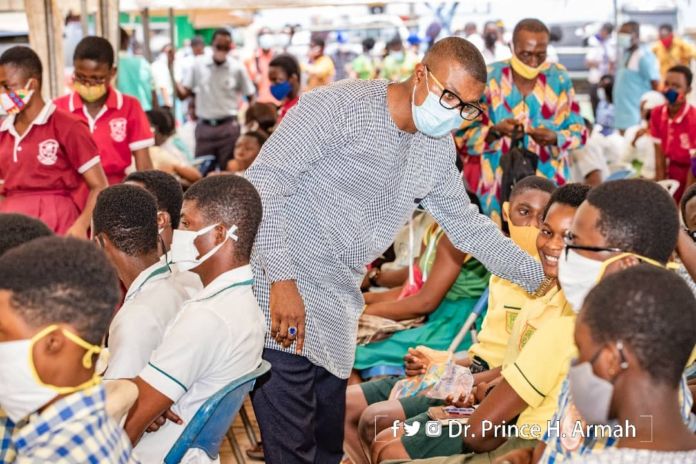Ghana spent a whopping ¢12.5 billion on educating young Ghanaians in 2019 alone, Member of Parliament for Kwesimintsim, Dr Prince Hamid Armah, has said.
This represented a 39 percent increase in the education expenditure in the 2018 fiscal year, he added, nearly as much as was invested in the banking sector clean-up.
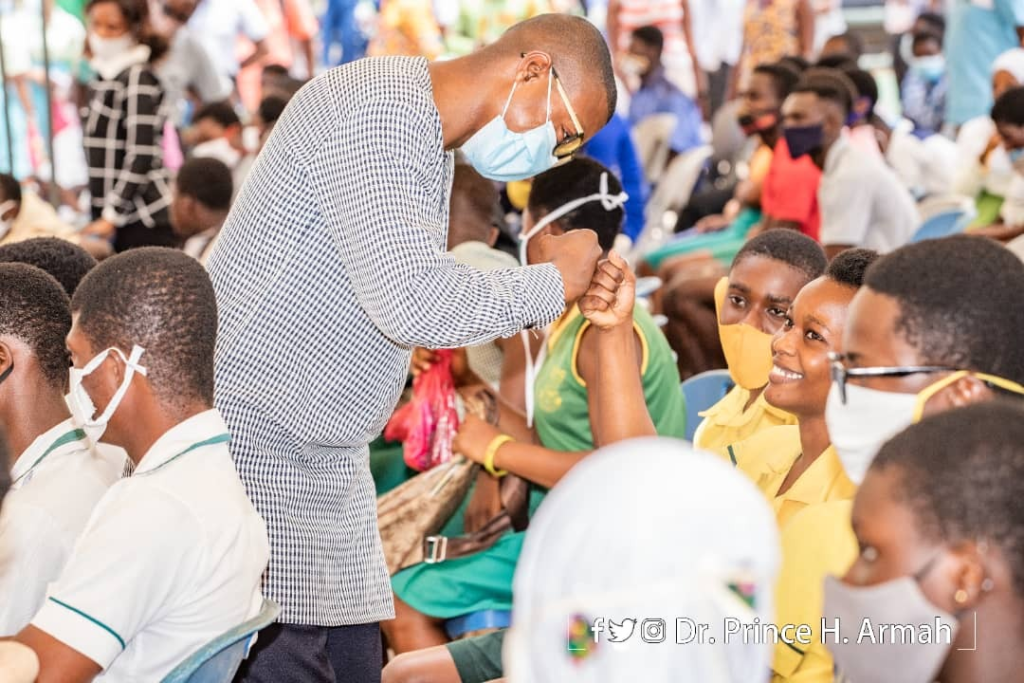
Dr Armah made these revelations in an opinion piece to mark the International Day of Education, which is marked every 24th of January by the United Nations to celebrate education worldwide and to highlight the significant role education plays in development.
This year’s International Day of Education is under the theme: ‘Recover and Revitalise Education for the COVID-19 Generation.’
According to Dr Armah, the theme could not have been more appropriate due to the drastic effect of Covid-19 on teaching and learning across the world.
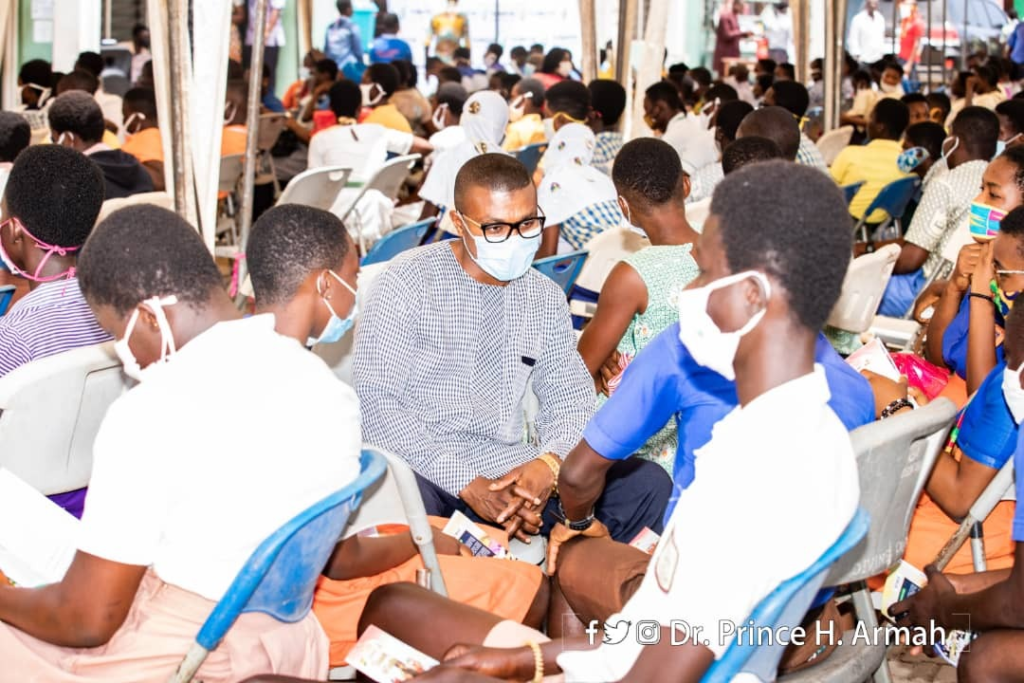
The former Director-General of the National Council for Curriculum and Assessment, who has played a remarkable role in Ghana’s new education reform, said the country’s education system will emerge stronger after Covid-19 than it was before it.
Dr Armah believes the pandemic has exposed the deep-seated inequalities in the country’s education sector as it has in other parts of the world.
“Even before Covid-19 struck, we faced the challenge of ensuring equity in educational opportunities. We know that family income levels have a very direct effect on the educational opportunities and outcomes of children. We know that children in urban areas have better access to educational infrastructure and materials. And we know that learners in the rural areas are less likely to receive the required amount of contact hours with teachers, where they are available, than their friends in the towns and cities. What the pandemic did therefore, was to highlight the challenges we were already contending with,” he stated.
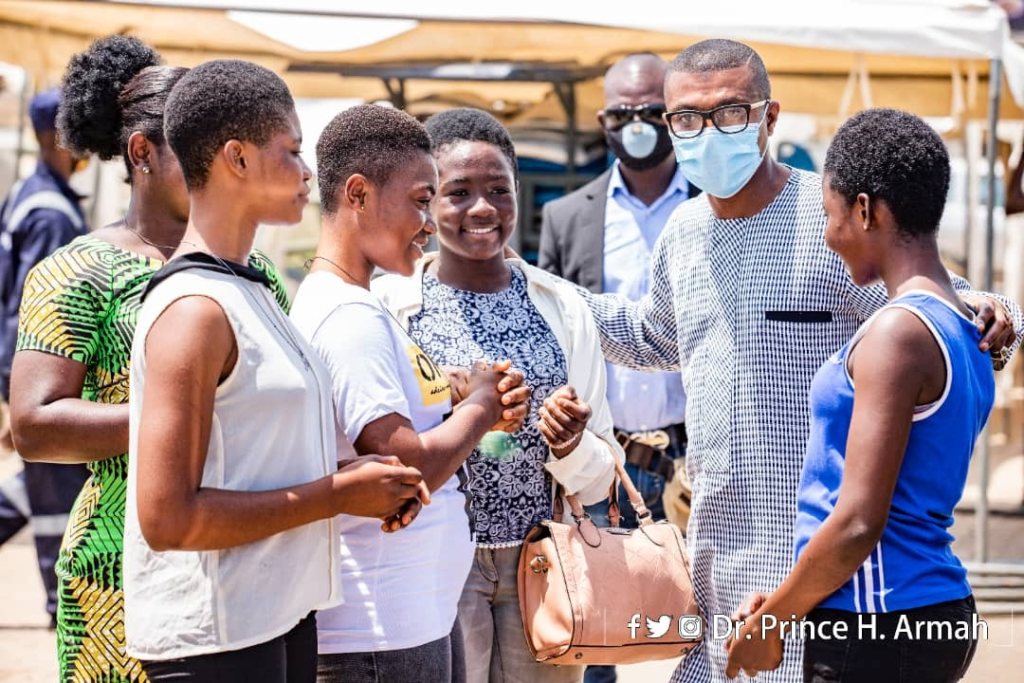
Though education has been one of the worst affected sectors, Dr Armah believes the best way to secure the future is to secure education for the children.
The education consultant and first-time legislator was confident the country was on the right trajectory towards massive education transformation.
“Since 2017, we have seen a steady rise in investment into the education sector. From 2013 to 2017, between 12 and 15 percent of our annual expenditure was applied to education. In 2019, however, we spent GHc 12.5 billion on educating young Ghanaians. This represented a 39 percent increase in expenditure in the 2018 fiscal year,” he said.
He noted that the investment is beginning to yield fruits in the sector, adding that in 2020 Ghana had “74.68 percent of all eligible children in school. This compares very favourably with the 55.7 per cent who were, in 2011. It also compares well with the global average, which is 79.88, about five percentage points higher than ours. We are not there yet, but we have come a long way.”
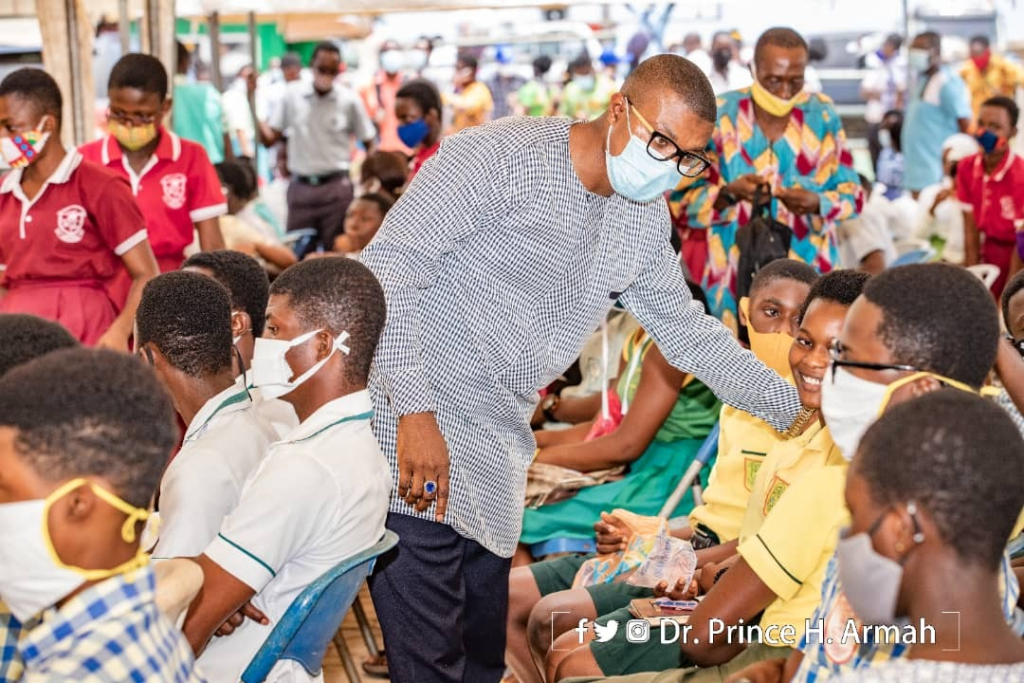
He also stated that: “The expansion in access has been complemented by a drastic overhaul of our curriculum and mode of assessment. For the first time, we are deliberately moving children away from learning by rote, or as we call it, chew, pour, pass and forget. Our children are now being engaged and nurtured in ways that will enhance their creativity, encourage problem-solving and nurture leadership abilities.”
Dr Armah paid glowing tribute to the president, Nana Akufo-Addo whose inspiration and commitment to education, he emphasised, inspired the diligent effort by the former Education Minister Dr Mathew Opoku-Prempeh and his former Deputy Dr Yaw Adutwum as well as Professor Kwesi Yankah, Gifty Ampofo Twum and Barbrah Ayisi.
“Together, this team led the sector through some of the most significant reforms in our history. The benefits of these reforms are now being felt, such as they were in the impressive results scored by the graduating class of 2020, the first to be enrolled under the government’s Free Senior High School Policy in 2017,” he noted.

